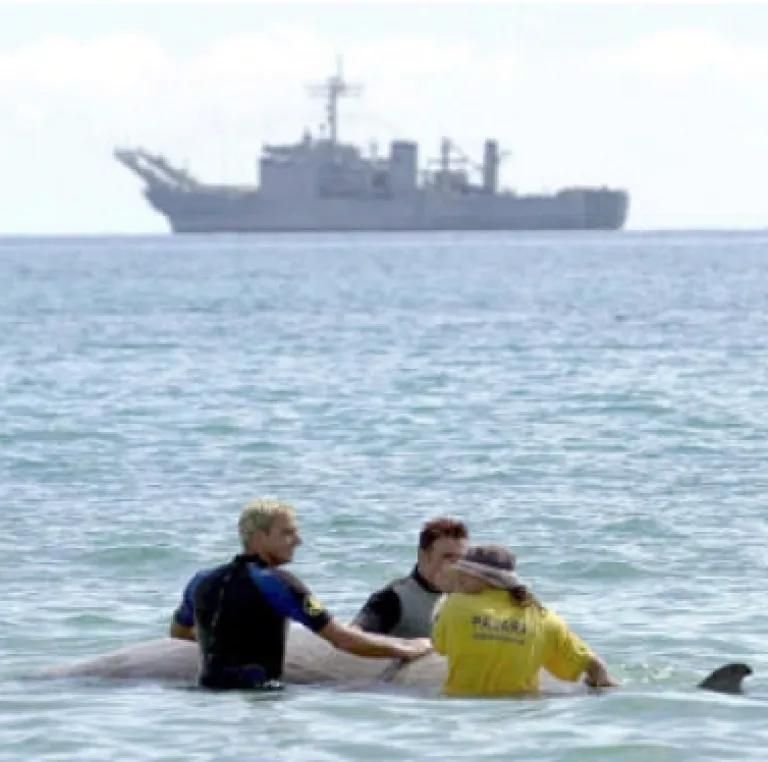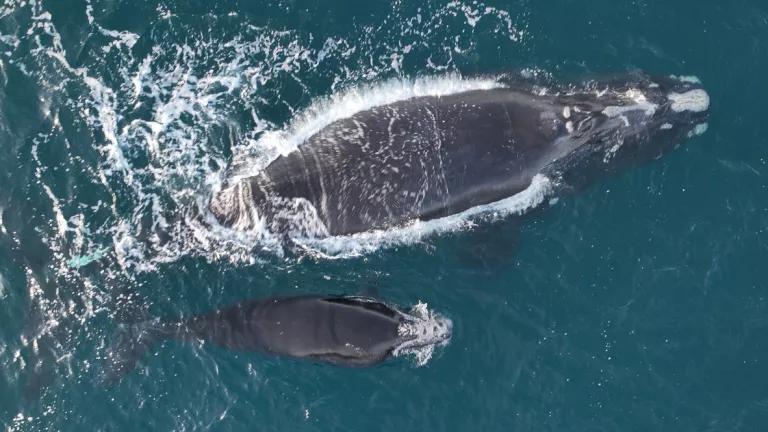The U.S. Navy plans its sonar training exercises as if killing dolphins and whales was inevitable. A recent correspondence in Nature suggests that simply is not true. [1]
The Spanish Canary Islands were once ground zero for mass strandings and mortalities of whales. In September 2002, fourteen beaked whales from three different species stranded in the Canary Islands during an anti-submarine warfare exercise in the area. In July 2004, at least four beaked whales died after an international naval exercise. Four other mass strandings, all associated with naval activity, struck the islands in the years before.

Canary Islands 2002 mass stranding.
Credit: Vidal Martin/ SECAC.
Today, the slaughter is over. In 2004, the Spanish government passed a moratorium on naval sonar in the Canary Islands, banning its use within 50 nautical miles of shore. Last week, Canary Island scientists reported in Nature that “there have been no mass beachings since the Spanish government imposed a moratorium on naval exercises in these waters in 2004.”[2] It’s a simple equation with a resounding result. Exclude navy sonar and end mass strandings.
The implications are powerful and the timing could not be more apt. As NRDC’s Michael Jasny reported in a recent blog post, after conducting a forensic investigation into the June 2008 stranding of 60 dolphins along the coast of Cornwall, England, a team of experts concluded that the probable cause of death was — once again — naval exercises. The UK, however, has not made corresponding limitations to the use of navy sonar in its waters, protecting areas of highest risk.
The U.S. Navy is similarly forging ahead with its plans to employ mid-frequency active sonar in the Gulf of Mexico, Atlantic, and Pacific Oceans. By the U.S. Navy’s own estimation, these exercises will cause over 30 million instances of harm to marine mammals, including more than 250 deaths and thousands of cases of permanent hearing loss and lung injury over the next five years. The U.S. Navy, however, has made almost no attempt to limit its sonar use (or explosives) in areas known to be migration corridors, foraging grounds, or calving areas for vulnerable marine mammal species.
When the canary in the mine stopped singing, it was time to get out of the mine. When the whales in the Canary Islands started dying on the beaches, the Spanish government and navy listened — they got out. The rest of the world should listen too.
[1] Antonio Fernández, Manuel Arbelo, and Vidal Martín. (2013). Whales: No mass strandings since sonar ban. Nature. doi:10.1038/497317d
[2] Id.



